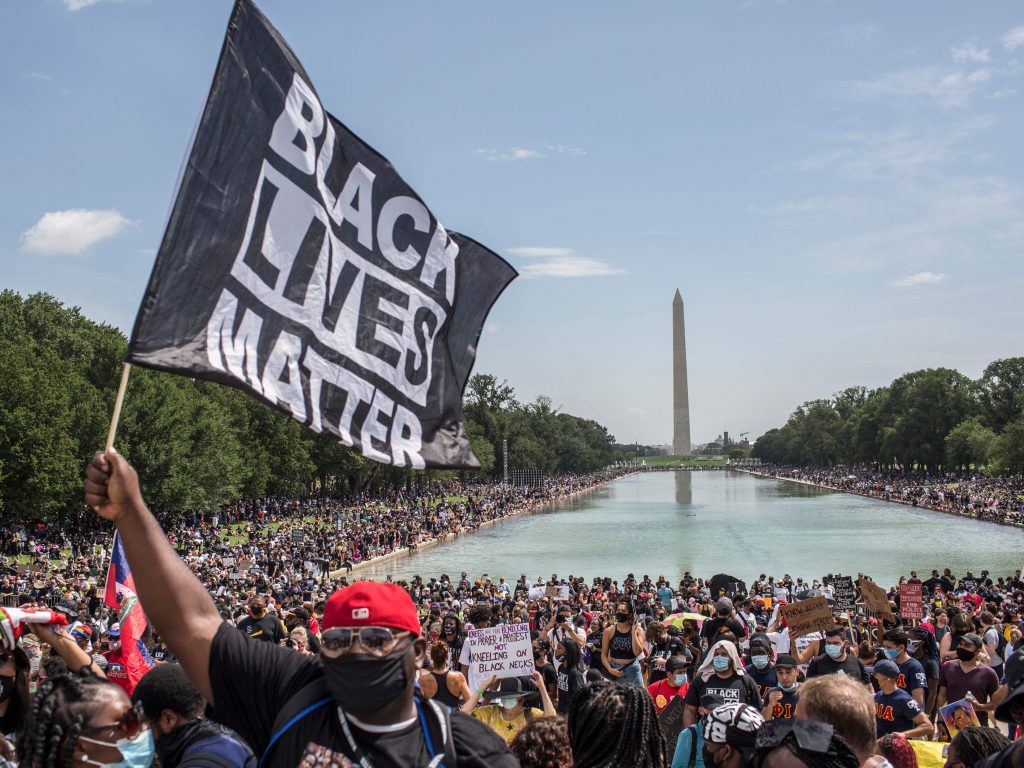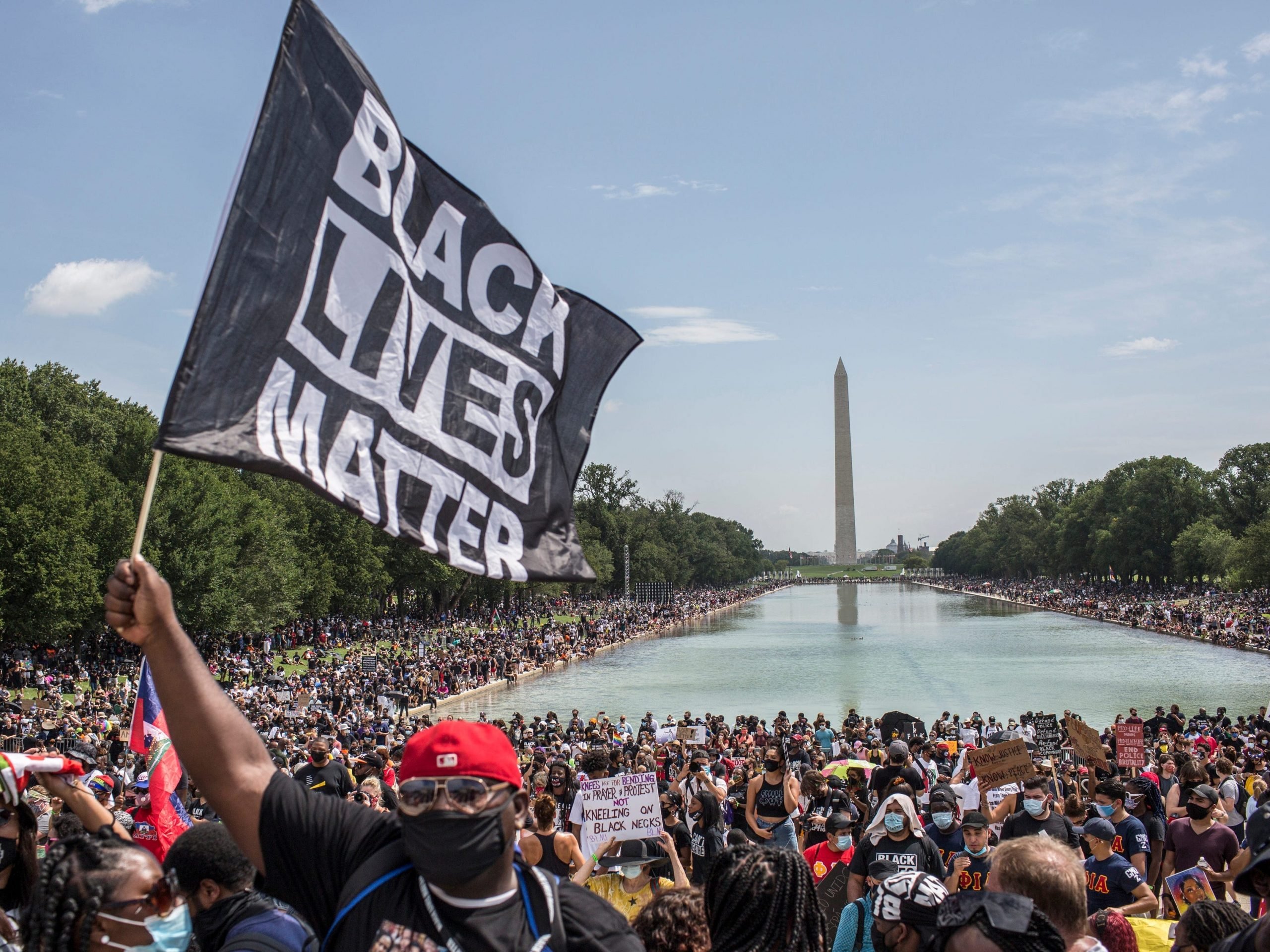
Probal Rashid/LightRocket via Getty Images
- More people of color are motivated to run for office after the pandemic and racial justice protests.
- For candidates, fatal police shootings hit close to home, occurring in and around their communities.
- Police reform is at the forefront of platforms, in addition to housing, education, and the economy.
- Visit Insider's homepage for more stories.
Carla Monteiro's family and friends had been encouraging the social worker to run for office for years.
She is now running for an at-large seat of the Boston City Council. And why not? As Monteiro said, "every part" of her life "prepared" her for politics.
From getting evicted as a child growing up in Dorchester, Massachusetts, to losing loved ones to gun violence and substance abuse, to getting fired twice in one week from employers who didn't grant time off while her son was hospitalized for asthma, Monteiro has witnessed the effects poor policy has on the lives of the country's most vulnerable people firsthand.
Yet while the idea of running for office had been looming in her head for a while, she hadn't felt ready until after the murder of George Floyd at the hands of Minneapolis law enforcement last May.
"The George Floyd murder was devastating for all of us. That could be anyone's son," Monteiro said, adding that "all of my life experiences have played a role" in her decision to run for office, "but being the mother of a Black son and being a Black woman, I thought it was just the time."
Monteiro joins an exponentially growing group of people of color who've long championed racial justice through their advocacy work, but have recently been inspired to run for office because of last summer's Black Lives Matter protests and the pandemic's exacerbation of racial inequality.
More people of color, women have run for office than ever before
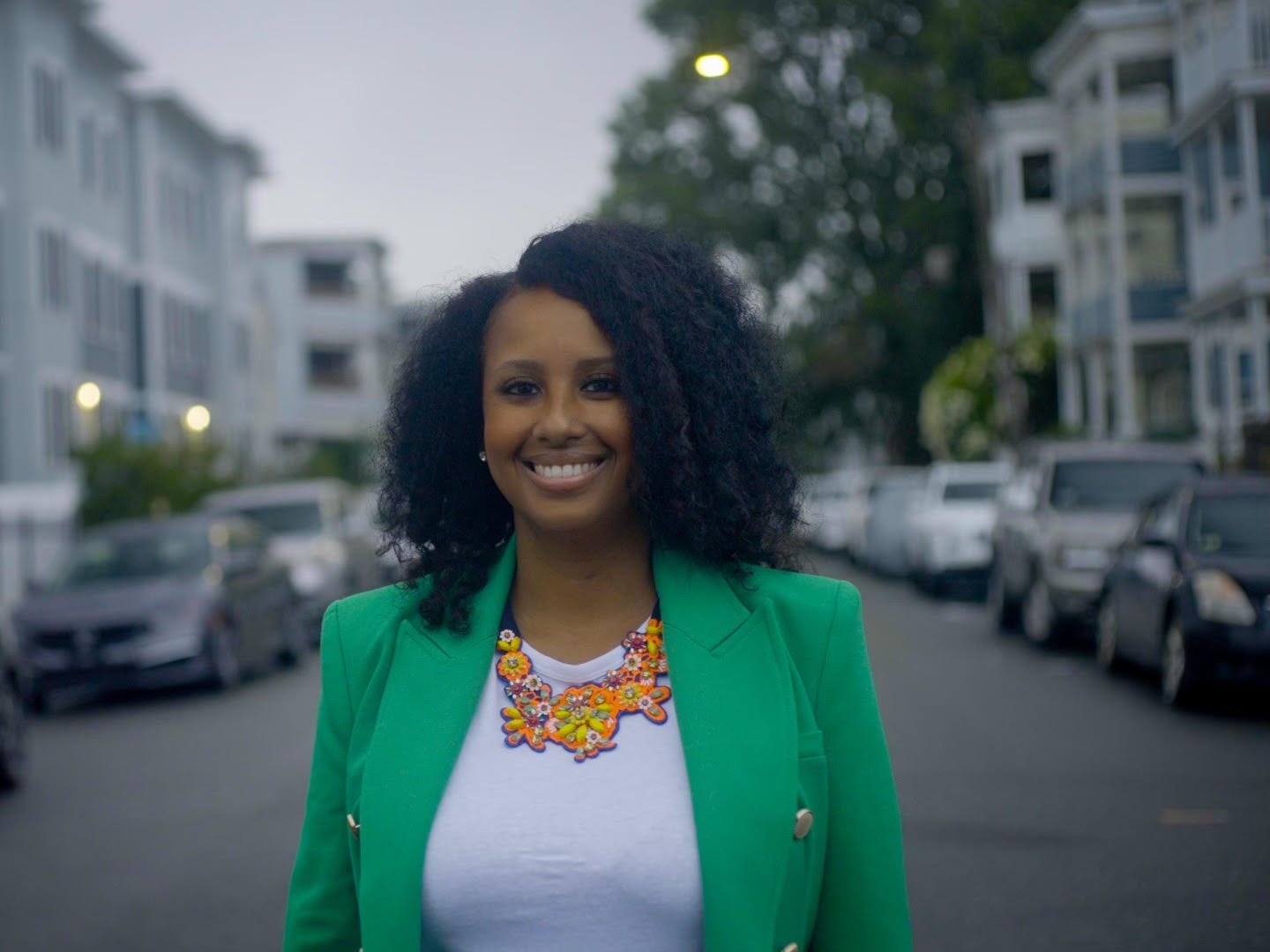
Courtesy of Sean Reardon
From Boston, where 4 of 5 major candidates are people of color in the city's battleground mayoral race, to Bozeman, Montana where Christopher Coburn recently became the first queer Black candidate appointed to the city's council, people of color have been bringing new levels of representation to politics over the past year.
While comprehensive data recording the exact number of people of color running for various offices is scarce, Amanda Litman, co-founder of Run for Something (RFS), an organization that aids young, progressive political newcomers with their campaigns, attests that RFS' candidate recruitment numbers "spiked" at the height of the protests in May though July 2020.
"We saw a surge of people signing up to run and it never really slowed down," Litman told Insider. "People started to really connect the dots and started saying, 'if I care about these problems, if I care about police accountability, if I care about the way schools are run in my community, if I care about criminal justice reform, it's really solved on the local level.'"
"The people currently in office are not getting it done, even and especially in places where Democrats are ostensibly in charge," she argued.
Running for office once seemed unfathomable for Basheer Jones, who currently serves on the Cleveland City Council and is now running for mayor of the city.
As a community activist, working on issues like literacy and community-police relations, he spent his early career attempting to institute change from outside the political arena.
It wasn't until he interviewed Marcia Fudge, the secretary of housing and urban development, for a radio show more than a decade ago, that he decided to merge his advocacy work with traditional politics. "I was not political. I was the activist that was leading the marches in Cleveland against politicians," Jones said. "Marcia Fudge … told me, 'Basheer, I understand you're upset, but you can be an elected official and a public servant. Basheer, you have to be part of the system and change it from within.'"
If Jones wanted to see things change, he would have to run for office - even if he believed there were many politicians "who are standing in the way of progress."
Politics has been diversifying in recent years; since the 2016 presidential election, more white women and people of color are running for office and winning.
The phenomenon is most visible in Congress. With nearly a quarter of its members identifying as racial and ethnic minorities, Congress is more diverse than it's ever been, per the Pew Research Center.
Since RFS began five years ago, more than half of the nearly 2,000 races RFS endorsed were people of color, Litman noted, which she said speaks to their growing presence in politics.
Racial justice protests that continued into this year have become another inflection point motivating people to run, according to Litman, who cited RFS candidates and Black Lives Matter activists like Bridgette Craighead, Indira Sheumaker, and Justan Parker Fields as examples of candidates who were ignited in large part by the events of the last summer to turn to politics .
When fatal police shootings occur in candidates' neighborhoods
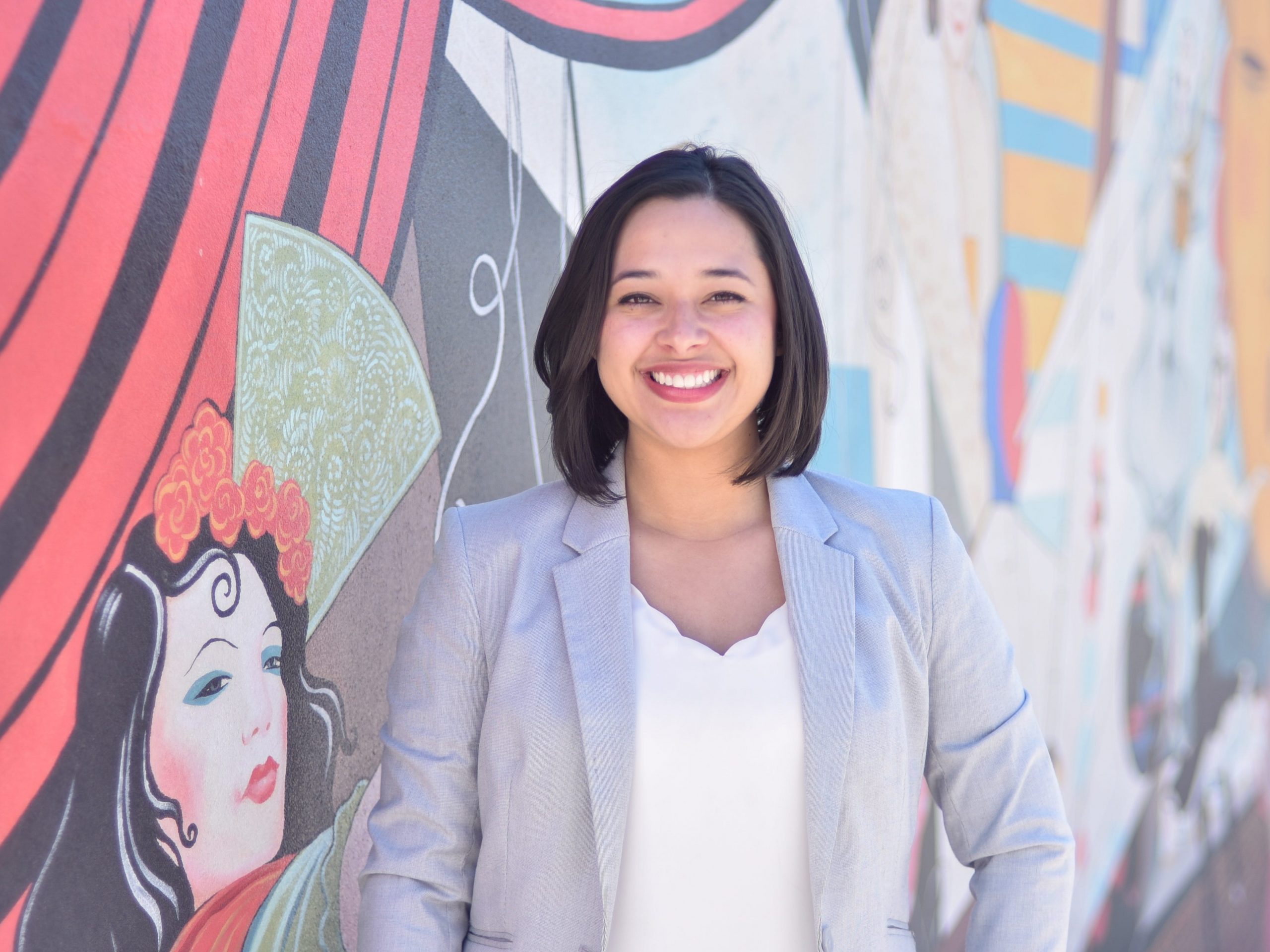
Courtesy if Cisco Mora
For some candidates, the protests hit especially close to home as they bore witness to the effects fatal police shootings had on their own communities.
Crystal Murillo, who is running for re-election on Aurora City Council, recalls how her Colorado constituents were shaken by the death of Elijah McClain, a 23-year-old Black man who suffered a cardiac arrest and died days after a violent encounter with the city's police.
An independent probe, which was commissioned by the city's council, found that police were not justified in using force against McClain and that the paramedics at the scene sedated him "without conducting more than a visual observation."
"He was 23 years old when he died. I was 23 years old when I was elected. The proximity wasn't lost on me," Murillo, who's now 27, said. "We're both from Aurora, we're both young people. The only difference is he was a Black man and I'm not."
Murillo, who, if reelected, said she would invest in programs like Crisis Assistance Helping Out on the Streets (CAHOOTS) - a public safety system that sends unarmed paramedics and mental health professionals to answer non-emergency calls - recalled the difficulty of having to wait for the investigation to conclude as people demanded answers and grappled with pain and anger.
"It felt very bureaucratic. It was hard not to be able to do something immediately, to have to sit with that truth that no one should die like that and let the process play out," Murillo said.
She added that nearly half of all use of force in Aurora last year was against Black residents, even though they make up only 16% of the city's population.
Several of the most high-profile stories involving police killing Black men last summer, including Ahmaud Arbery and Rayshard Brooks, occurred in Georgia.
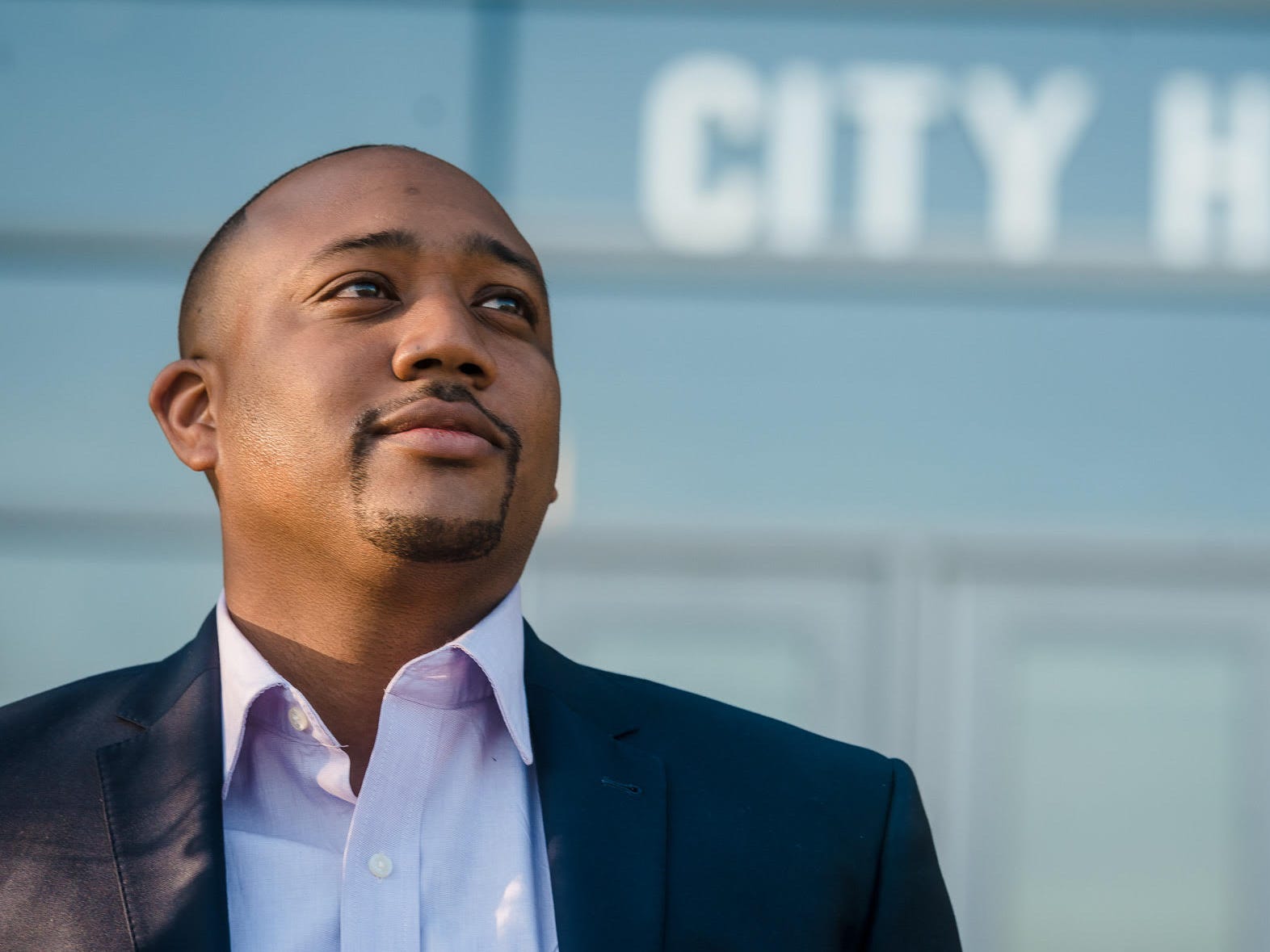
Courtesy of Kevin Lowery
Dontaye Carter, who's running to become the mayor of Sandy Springs, a suburb of Atlanta, echoed the sentiment that the pain of such violence reverberates throughout communities.
"The protests revealed a lot about where we are at this time," Carter said. "It wasn't even just George Floyd. It was Ahmaud Arbery, it was Breonna Taylor. When you look at the institution of policing, not much has changed since the 1940s."
"Until we start to address the policies, the fabrics of these bad laws stay in place," he added.
Carter's campaign involves instituting legislation that improves law enforcement accountability and community-police relations so that communities feel "protected, not occupied."
"We don't have to wait on the president to sign the George Floyd bill," Carter said, referring to The George Floyd Justice in Policing Act, which was passed by the House of Representatives in March and has yet to receive a vote in the Senate.
"A mayor has the ability to put those things into practice at the local level."
The bill would end qualified immunity for law enforcement officers, ban no knock warrants in federal drug cases, and prohibit chokeholds and carotid holds - two police techniques that involve the use of deadly force. It is considered "the most ambitious policing reform bill in decades."
The fight for racial justice beyond police reform
Candidates want to be clear that the fight for racial justice goes beyond police reform as inequity permeates every facet of policy from housing to healthcare.
Aftab Pureval, who's running for mayor of Cincinnati, has been especially concerned with how courts perpetuated racial inequality with exorbitant fines that "prevent mobility" and the lack of affordable housing in the city, particularly since Black women are disproportionately facing eviction.
There's a lot of us who've been doing the groundwork all this time. We're also realizing our voices need to be heard on the policy level.Carla Monteiro, Boston mayoral candidate
"We need to prioritize creating affordable housing in a systematic and ongoing fashion and eradicate housing zoning laws that prevent multifamily housing, artificially keeping our supply down and driving prices up," Pureval, who, if elected, would be the first Asian-American mayor of Cincinnati.
For people of color and anyone else from a marginalized community, there are many obstacles to running for office, not least of them: money to finance their campaigns and distrust in a government that hasn't traditionally served them.
However, many candidates say they are buoyed by the belief that they can truly make a difference and envision a better country that fulfills its ideals.
"We've been out here doing the work," Boston mayoral candidate Carla Monteiro said. "There's a lot of us who've been doing the groundwork all this time. We're also realizing our voices need to be heard on the policy level."
